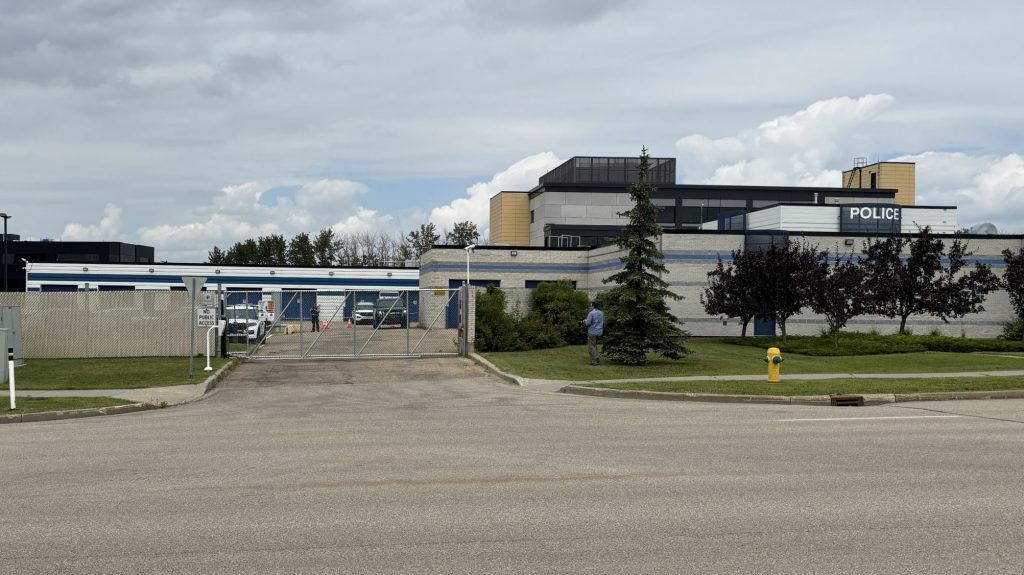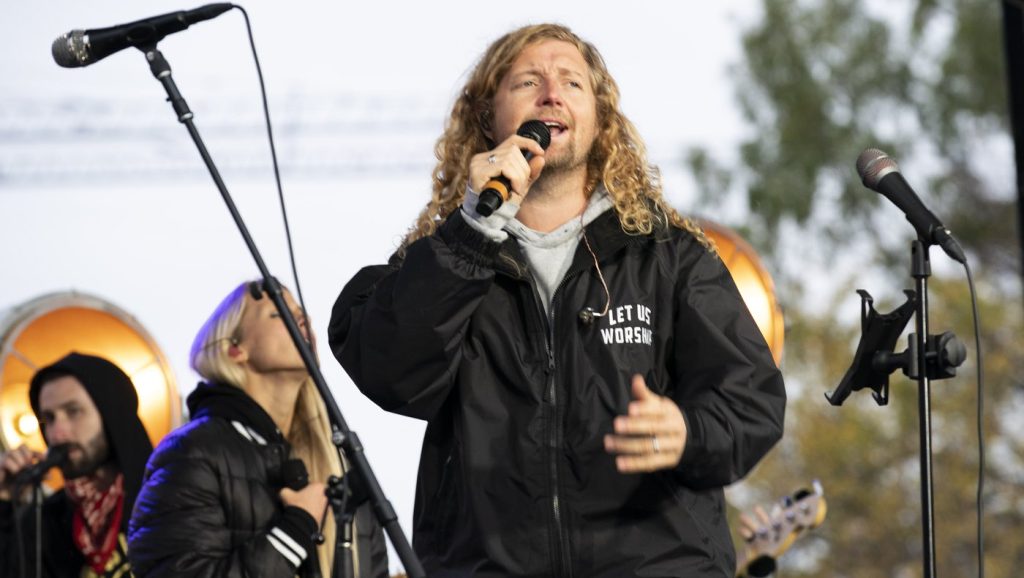Montreal’s Meryam Joobeur gets Oscar nod for Tunisia-set short ‘Brotherhood’
Posted January 13, 2020 2:33 pm.
This article is more than 5 years old.
MONTREAL – A chance encounter with three young brothers and their sheep on the side of the road in her childhood country of Tunisia has landed Montreal filmmaker Meryam Joobeur her first Oscar nomination for a project that also stars those very siblings.
On Monday, Joobeur got a nod for best live-action short for “Brotherhood,” a stirring story of a rural Tunisian shepherd who is torn when his estranged eldest son returns home from Syria with a mysterious young wife.
Joobeur, who grew up in Tunisia and the United States before moving to Montreal at age 17, says she met the three non-actors who play the brothers while on a road trip to explore her heritage in a remote region of northern Tunisia in 2016.
“I was immediately captivated by their faces, because they have red hair and strong freckles and I had never seen that in Tunisia before,” Joobeur said Monday in a phone interview, shortly after the Oscar nominations were announced in Los Angeles.
Joobeur and cinematographer collaborator Vincent Gonneville pulled over and asked the trio if they could take their photo. They said “no,” and Joobeur and Gonneville drove away.
But Joobeur couldn’t shake their two-minute encounter, so she wrote a script inspired by them.
A year and a half later, she went on a search to cast them in the film.
“We went from village to village asking strangers if they knew any red-headed brothers who have sheep,” said Joobeur, 28.
“After a lot of searching, we managed to find their house, and that’s when I got the opportunity to present the project to them.”
At first the brothers — Malek Mechergui, Chaker Mechergui, and Rayenne Mechergui — were leery, Joobeur said.
“This strange young woman with an accent comes to your doorstep and is like, ‘I have a script for you to act in’ — it’s a bit strange.”
But eventually they accepted the idea and now want to pursue acting further, Joobeur said.
“Brotherhood” stars professional actors Mohamed Grayaa as the shepherd and Salha Nasraoui as his wife, who are apprehensive with the return of their son in a country in which many young Tunisians are recruited by the Islamic State militant group.
Joobeur directed the film at a remote house belonging to the brothers’ great uncle, and made it a co-production between Tunisia, Canada, Qatar and Sweden.
Joobeur said none of the real-life brothers had gone to Syria, nor had any connection with someone who had.
But, like most Tunisians, they’d heard of stories of men who’d gone and been radicalized.
“In Tunisia this is an issue we’ve all in some way heard or have a very distinct connection to at the least, so from that they were able to craft their characters,” said Joobeur, was born in the U.S. while her Tunisian dad was studying there on a scholarship. The family lived in Tunisia when Joobeur was aged four to six and continued to after moving back to the U.S.
The Islamic State is “the undercurrent of the story” in “Brotherhood” but ultimately it’s a look at the universal themes of family and communication, she added.
“I was exploring how issues within family — lack of self esteem, lack of confidence, lack of security — can lead a young person to do something extreme, whether it is joining the Islamic State, whether it is joining a neo-Nazi group, whether it is falling into drugs. These extreme decisions are born out of something and I wanted to explore a possible origin for that.”
Joobeur shares her Oscar nomination, her first ever, with producer Maria Gracia Turgeon. They’re up against the films “Nefta Football Club,” “The Neighbors’ Window,” “Saria” and “A Sister.”
Joobeur’s grandmother was among the first people she spoke with by phone after the Oscar nod Monday morning.
“I had to really try to underline the significance of it for her,” Joobeur said with a laugh.
“I was like, ‘Grandma, this is a big thing! It’s like the awards ceremony in Tunisia that we have,’ and she’s like, ‘OK!'”
Joobeur said she’s now developing a feature film loosely inspired by “Brotherhood,” which she’ll shoot in the same town with the same stars and Quebec/Tunisia film team.
Joobeur’s previous films include the 2012 documentary short “Gods, Weeds and Revolutions,” which is inspired by the filmmaker’s experiences with her grandfather, who was suffering from Alzheimer’s during Tunisia’s revolution of 2011.
Her 2017 short fiction film, the Montreal-shot “Born in the Maelstrom,” is about the relationship between a young biracial woman and her black mother. The story is inspired by Quebec author Marie-Claire Blais’ novel.
“I’ve always been drawn to perspectives that haven’t been explored before or characters that kind of live in the margins of society in some way,” Joobeur said.
“With ‘Brotherhood’ for example, I was hoping I could break some stereotypes about the communities I care about … and even break the simple stereotype of what we look like. And if that could be broken, maybe it could lead to a deeper questioning of what other stereotypes people hold.”
This report by The Canadian Press was first published Jan. 13, 2020.
Victoria Ahearn, The Canadian Press








